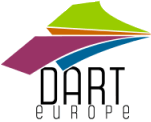Mostrar el registro sencillo del ítem
What is an intellectual? The Spanish debate during the First World War
| dc.contributor.author | Jiménez Torres, David | |
| dc.date.accessioned | 2017-10-26T14:41:25Z | |
| dc.date.available | 2017-10-26T14:41:25Z | |
| dc.date.issued | 2014 | |
| dc.identifier.uri | http://hdl.handle.net/20.500.12020/544 | |
| dc.description.abstract | This paper explores the problematic definition of the term intelectual in Spain in the early twentieth century, as shown by the polemic that surrounded attitudes to the First World War. Despite Spain’s official neutrality throughout the conflict, its citizens became extremely interested in the European struggle. The country’s leading intellectual figures fostered a taking of sides that pitted aliadófilos against germanófilos in a discursive war of their own. But the manifestos published by each of the two sides in 1915 show that, beyond the discussion over which countries should win the war, this polemic contained an important debate over the very definition of the term intelectual. Each side produced its own idea of what was meant by this term, with the end goal of de-legitimizing the other side’s claims. This shows us the unstable nature of the term intelectual and the figure it referred to; an instability scholars of twentieth-century Spanish intellectual history need to pay attention to. Rather than this being something particular to Spain, the paper argues that this type of polemic was intrinsic to the appearance of the intellectual as a public figure in early twentieth-century Europe. El presente ensayo expone la problemática definición del sustantivo ‘intelectual’ en la España de principios del siglo XX, a la luz de la polémica que suscitaron las distintas actitudes de los españoles ante la Primera Guerra Mundial. A pesar de la neutralidad oficial, los ciudadanos mostraron un enorme interés hacia el conflicto que asolaba Europa. Las principales figuras intelectuales fomentaron la toma generalizada de partido que acabó enfrentando a aliadófilos y germanófilos en una auténtica guerra dialéctica. Sin embargo, los manifiestos publicados por ambos bandos en 1915 demuestran que, más allá de la discusión acerca de qué países debían ganar la guerra, la polémica incluía un debate importante acerca de la definición del término ‘intelectual’. Los aliadófilos y los germanófilos definieron al intelectual y su función de formas radicalmente distintas, siempre buscando deslegitimar al otro bando. Esto nos muestra lo inestable del sustantivo ‘intelectual’ y de la figura a la que hacía referencia; una inestabilidad que debemos tener muy en cuenta a la hora de aproximarnos a la historia intelectual de esta época. Además, esta polémica no fue exclusiva a España sino que formaba parte de un debate más amplio en la Europa de principios del siglo XX. | es |
| dc.language.iso | en | es |
| dc.rights | Attribution-NonCommercial-NoDerivatives 4.0 Internacional | * |
| dc.rights.uri | http://creativecommons.org/licenses/by-nc-nd/4.0/ | * |
| dc.title | What is an intellectual? The Spanish debate during the First World War | es |
| dc.type | article | es |
| dc.identifier.doi | 10.1179/1468273714Z.000000000104 | |
| dc.issue.number | 6 | es |
| dc.journal.title | Hispanic Research Journal | es |
| dc.page.initial | 515 | es |
| dc.page.final | 529 | es |
| dc.rights.accessRights | embargoedAccess | es |
| dc.subject.area | Ciencias Sociales, Políticas y del Comportamiento | es |
| dc.subject.keyword | Spain | es |
| dc.subject.keyword | intellectuals | es |
| dc.subject.keyword | First World War | es |
| dc.subject.keyword | propaganda | es |
| dc.subject.keyword | manifestos | es |
| dc.subject.unesco | 55 Historia | es |
| dc.volume.number | 15 | es |
Ficheros en el ítem
| Fichero/s | Tamaño | Formato | Ver |
|---|---|---|---|
|
No hay ficheros asociados a este ítem. |
|||





